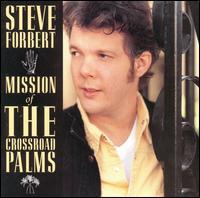
- Format: FLAC

Steve Forbert turns in an album of craftsmanlike tunes on his seventh album, including story songs such as "It Sure Was Better Back Then" (a working man's reminiscence) and "The Trouble With Angels" (in which an ex-beauty queen robs the till to pay for her infertility treatments). There is also one of Forbert's philosophical treatises ("It Is What It Is [And That's All]") and the humorously multi-referential "Lay Down Your Weary Tune Again" (risky territory for a former "new Dylan"). But the best song may be Forbert's ode to infidelity, "Don't Talk to Me." The point, though, is that Forbert has flowered into a distinctive, broad-based songwriter and that, in E Street Band bassist Garry Tallent, he has found a sympathetic producer able to showcase his voice and lyrics properly. Now, if he could just reconnect with his audience.
Steve Forbert: Vocals, acoustic guitar, and harmonica
Clay Barnes: Electric guitar; acoustic guitar on
"Lay Down Your Weary Tune Again"
Roger Clark: Drums
Garry Tallent: Bass
Benmont Tench: Keyboards
Dianne Davidson: Backing vocals on "So Good to Feel Good Again"
Donna McElroy: Backing vocals on "Real Live Love"
Billy Hullett: Acoustic guitar on "It Is What It is and That's All,"
and electric guitar on "So Good to Feel Good Again"
Tom Roady: Percussion
Glen Caruba: Congas on "So Good to Feel Good Again"
Produced by Garry Tallent
Recorded at Moondog Studio, Nashville
Mixed by Richard Dodd
Mastered at Masterdisk, New York